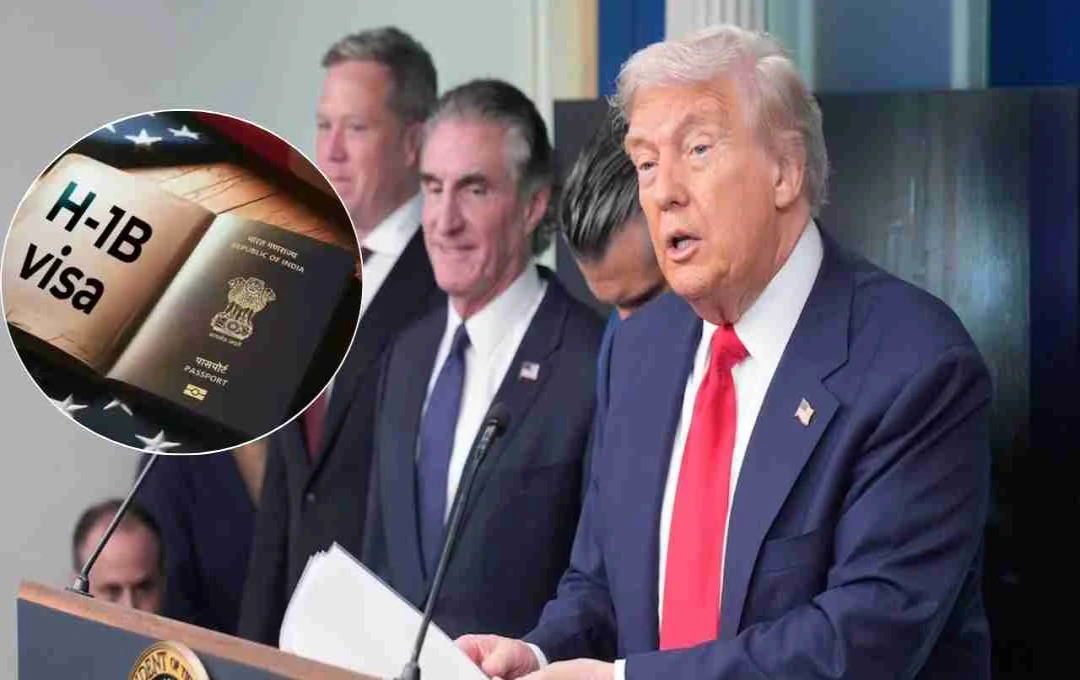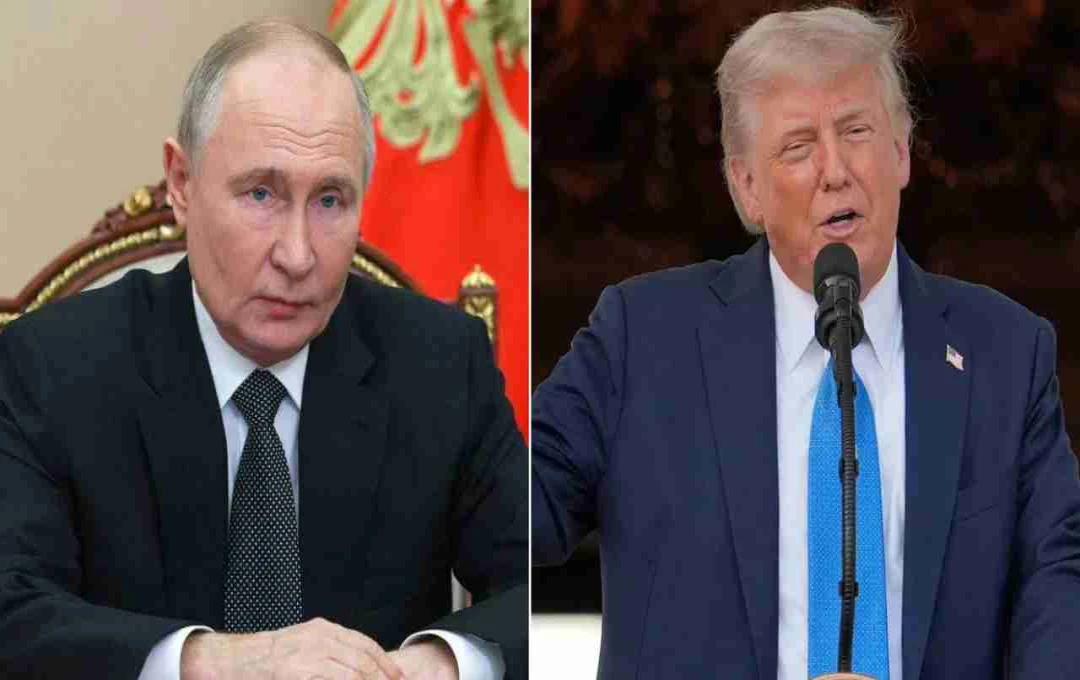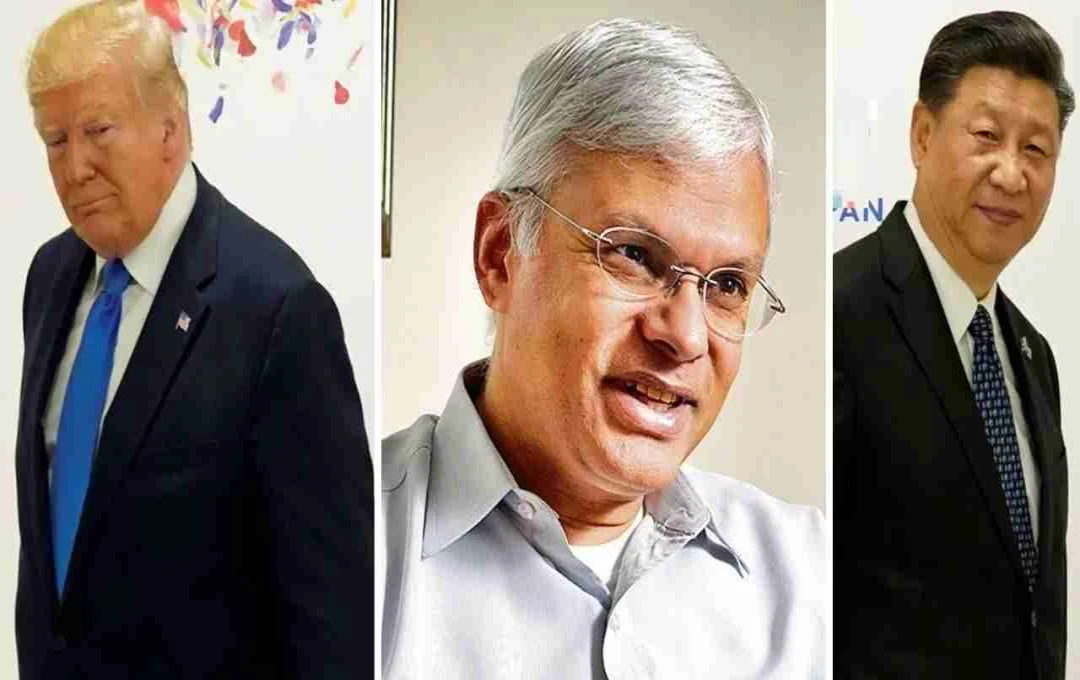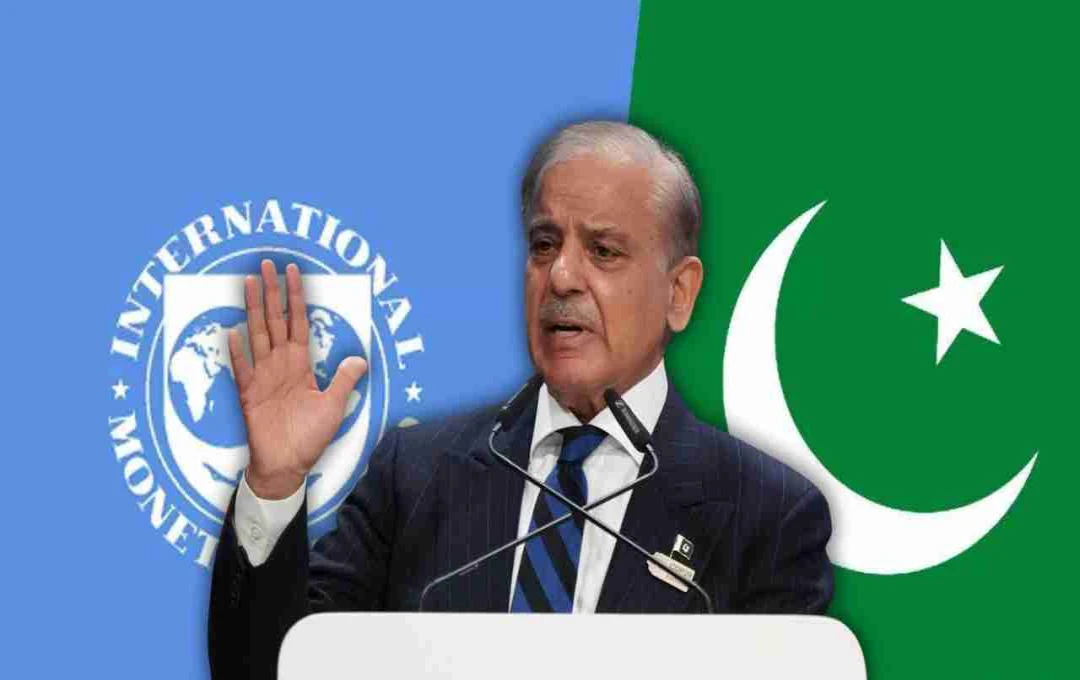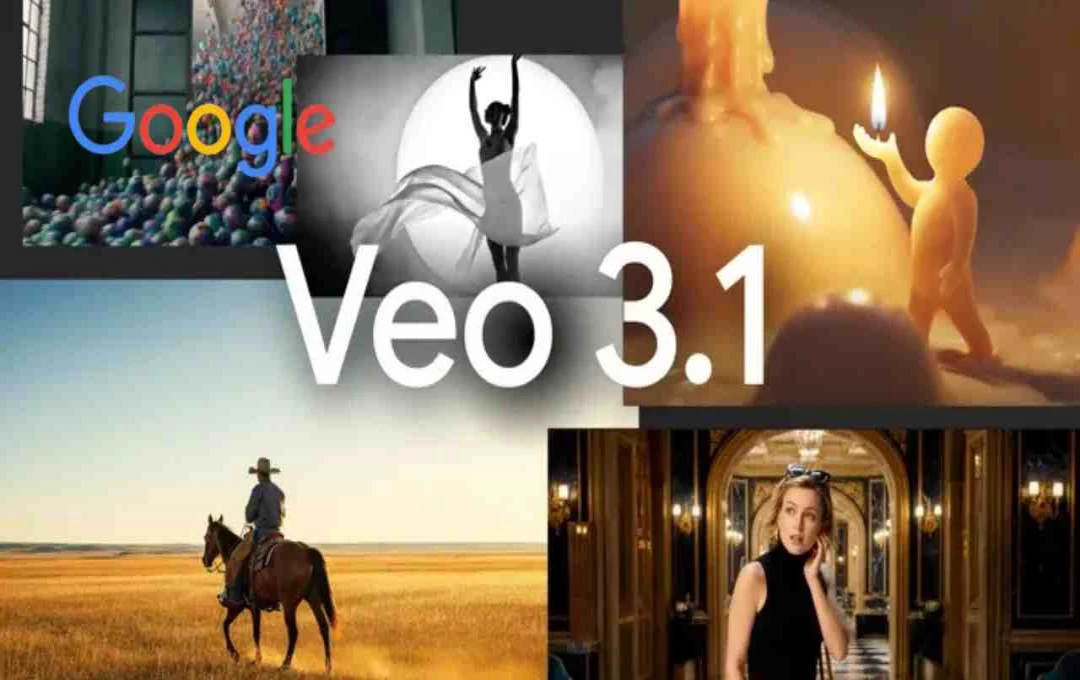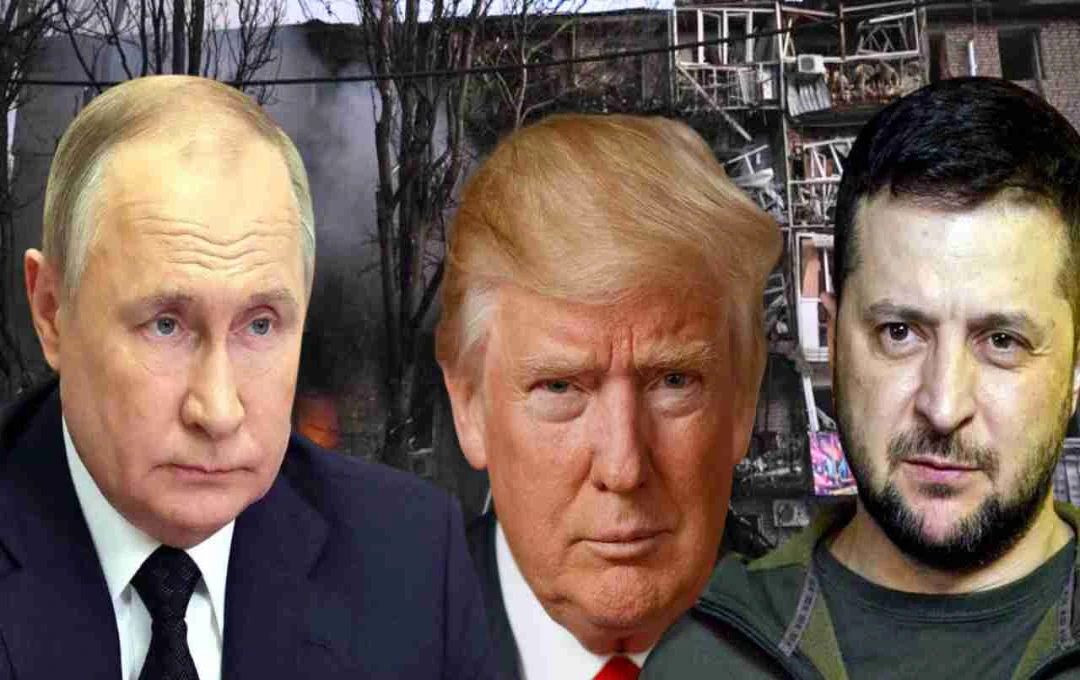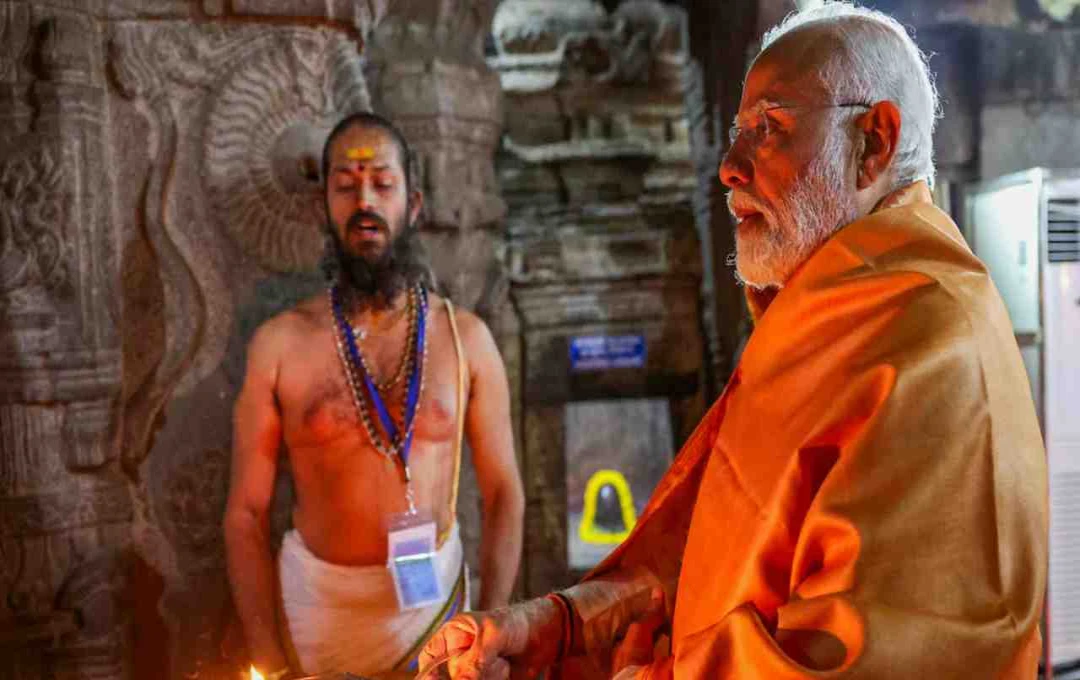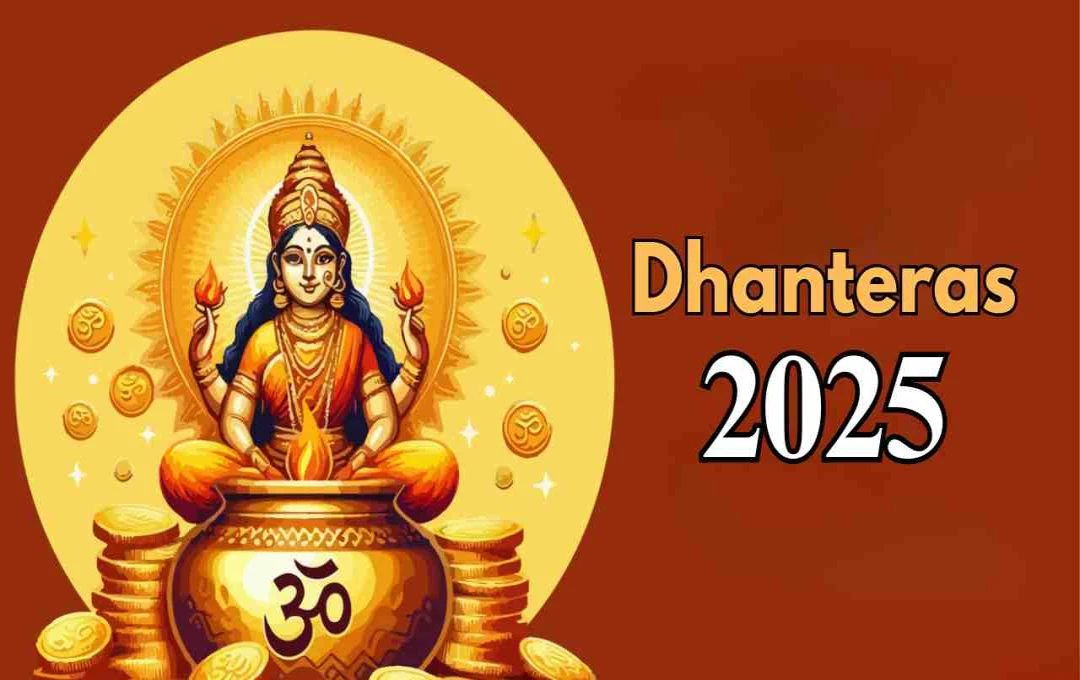The US Chamber of Commerce has challenged the Trump administration's decision to impose a $100,000 fee on H-1B visa applications in court. This move is expected to bring relief to Indian professionals, while American companies have also protested against it.
US News: A new controversy has erupted over the H-1B visa in the US. Under the decision of US President Donald Trump, a $100,000 annual fee will now have to be paid for H-1B visa applications. This decision has caused concern not only for American companies but also for thousands of Indian professionals. Meanwhile, the U.S. Chamber of Commerce has challenged Trump's decision in court.
Trump's Big Decision on H-1B Visas
President Trump recently announced that a $100,000 annual fee would now be imposed on applications for H-1B visas, which are granted to foreign workers to work in the US. This decision was described as part of the “America First” policy, under which the Trump administration aims to prioritize American citizens.
The H-1B visa is primarily granted to high-skilled workers, especially in the technology and IT sectors. Thousands of engineers, software developers, and specialists from India work in the US every year through this visa.
US Chamber of Commerce Reaches Court
The U.S. Chamber of Commerce, America's largest business organization, has filed a petition in a Federal Court in Washington D.C. The petition states that the Trump administration's decision is “illegal” and an abuse of the executive branch's powers.
The Chamber argues that this decision will harm the American economy as it will increase companies' labor costs. The lawsuit filed in court demands that this decision be immediately halted to prevent significant damage to American businesses.
US Chamber's Argument – The Decision is Illegal
The Chamber argued in court that the new fee set for H-1B visas violates the Immigration and Nationality Act (INA). Under this law, the government can only collect fees that are related to the actual administrative costs of the visa application process.
While the US President has authority over immigration policies, they are bound by the limits of the law. This boundary has been crossed in Trump's decision.
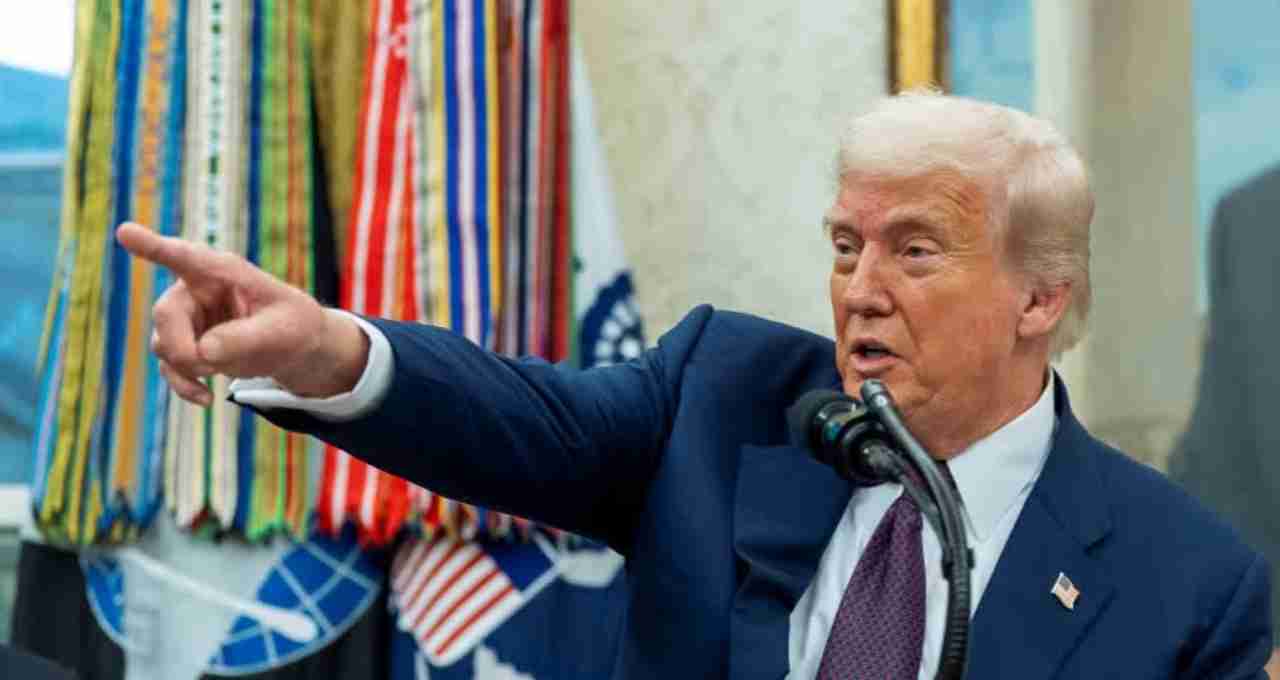
The Chamber stated that the average cost of an H-1B visa application was previously less than $3,600, whereas now this fee has been increased by almost 30 times. This is not only impractical but will also destabilize the US immigration system.
Increased Pressure on American Companies
The U.S. Chamber of Commerce says that the Trump administration's decision will prove to be a heavy burden for American businesses. If this fee is implemented, companies will either have to increase their labor costs or rely on less skilled workers.
Many American tech companies such as Google, Microsoft, Amazon, Meta, and IBM are heavily dependent on Indian employees for their engineering and development projects. If the visa cost increases significantly, it will become difficult for companies to recruit foreign talent.
Impact on Indian Professionals
India is the largest beneficiary country of H-1B visas. Approximately 70% of H-1B visas are granted to Indians every year. Thus, this decision will directly impact Indian engineers, IT specialists, and healthcare professionals.
Many young professionals in India dream of working in American companies. However, if the fees become so high, it will be difficult for employers to sponsor Indian candidates. This could impact thousands of job opportunities.
Trump Administration's Defense
On the other hand, the Trump administration states that this decision was made to strengthen America's economic position and reduce foreign labor dependency. The administration claims that this will create more job opportunities for American citizens and allow companies to focus on local talent.
Trump had said in his speech, “America should now work for American people. Companies that prioritize foreign workers are against the interests of American workers.”
Tech Industry's Opposition
Several major US tech companies have criticized Trump's decision. They argue that the American education system is still not producing enough high-skilled talent to meet the needs of the tech industry. If the flow of foreign talent stops, it will impact the innovation capability of American companies.
Indian-origin leaders such as Google CEO Sundar Pichai, Microsoft CEO Satya Nadella, and Adobe CEO Shantanu Narayen had also previously emphasized the importance of H-1B visas.
